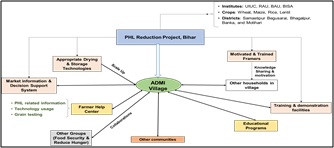
Prasanta K. Kalita
University of Illinois, USA
Title: Multi-stakeholder approach in reducing global food loss
Biography
Biography: Prasanta K. Kalita
Abstract
Meeting the food demand of rapidly increasing global population has been a growing challenge. With limited water availability and other inputs, climate change, and labor shortages, increasing agricultural food production will not be an easy task to meet the food demand of more than 9.5 Billion people by 2050. However, about one third of food produced globally (about 1.3 billion ton) is lost every year. Minimizing postharvest losses (PHL) can be one feasible approach in sustainably increasing food availability, combat hunger, improve health and nutrition, increase farm income, and enhance lives and livelihood of millions. The scale and causes of losses in various operations in the food supply chain are different in developing and developed countries. In developing or low-income countries, these losses occur in terms of physical and quality loss during initial stages of the supply chain such as harvest, drying, cleaning, storage, transportation, milling etc. In the industrialized and developed countries, the food loss occur at the retail or consumption stage in term of “food waste”. Poor management practices, lack of infrastructure and technology, lack of grading at farm level, multiple handling, and poor marketing system are some of the major factors responsible for these losses in the developing countries. Comprehensive and updated information along the postharvest supply chain, including the processes of harvesting, cleaning, drying, storage, processing, transportation and marketing, is needed to plan future capacity building efforts to implement the most appropriate technological solution and best practices for reducing PHL. The ADM Institute (ADMI) for the Prevention of Postharvest Loss has developed multi-stakeholder approach with private corporations, government agencies, educational institutions, NGOs, and philanthropic organizations in combating postharvest losses. The presentation will describe the ADM Institute’s efforts in various countries to reduce these losses through data collection, promoting technology interventions, trainings, and capacity building.

Fig. ADMI village concept in Bihar, India – a collaborative approach to reduce postharvest losses and improve faermers livelihood

